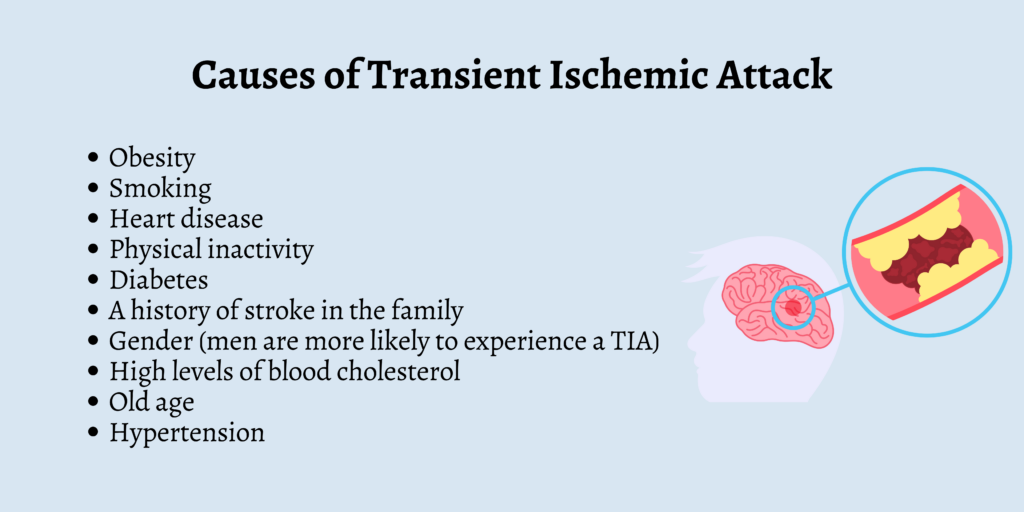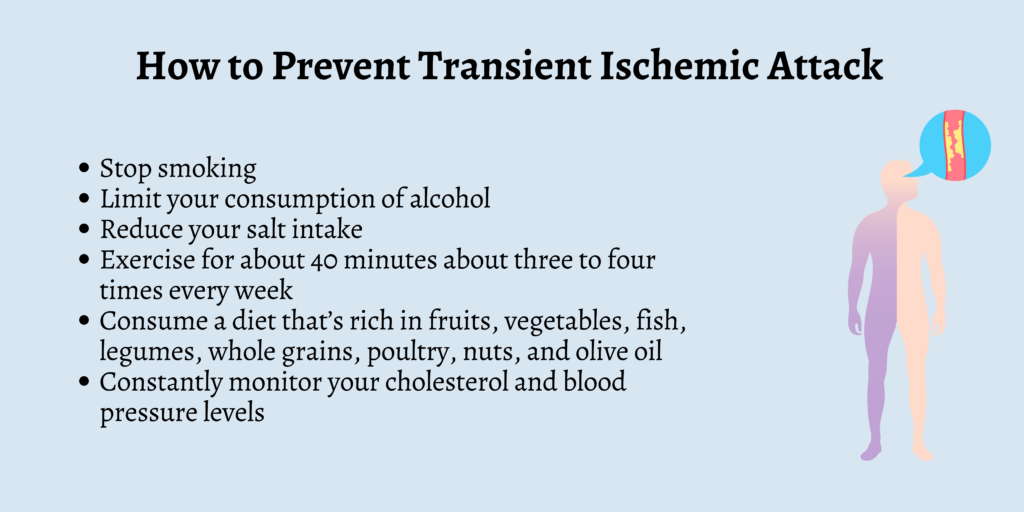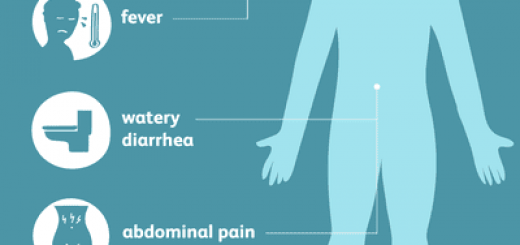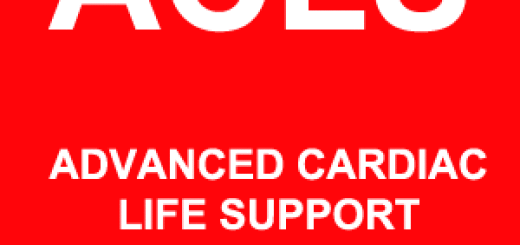What Is A Transient Ischemic Attack (TIA)?
A transient ischemic attack (TIA) is a temporary episode of symptoms that begins like a stroke and lasts between a few minutes to 24 hours. Also known as a mini-stroke, it does not cause any long-lasting effects on the brain as it does not kill a person’s brain cells.
When a transient ischemic attack begins, it can’t be predicted whether someone is having a mini-stroke or an actual stroke. Reports suggest that about 240,000 adults in the United States suffer from a TIA yearly.
What Are The symptoms of a TIA / mini stroke?
The signs and symptoms of a TIA are the same as a full stroke. This may include:
- Slurred speech
- Facial weakness
- Weakness in an arm and/or leg
- Headache
- Dizziness / vertigo
- Reduced level of consciousness
A TIA should never be ignored and should be reported to a medical professional as soon as possible. According to The Stroke Association, without treatment a quarter of people having a TIA will go on to have a full-blown stroke within a few years and up to 12 per cent of those who develop a TIA will go on to sustain a stroke within the following 12 months. The highest likelihood of suffering a stroke after a TIA is within the first four to six weeks.
Medication such as Aspirin may be given to people who have suffered a TIA by doctors in order to reduce their chances of having a full stroke in the future. Do not administer any medication in the first aid environment until the person has been assessed by a medical professional.
If you suspect someone is displaying symptoms of a stroke then you should seek emergency medical help as soon as possible. Never wait to see if symptoms will resolve by themselves. A TIA may appear the same as a full stroke in the initial stages.
The FAST test is a useful way for first aiders and first responders to recognise the signs of a stroke.
Causes of Transient Ischemic Attack

There are quite a few reasons why one might experience a transient ischemic attack. Listed below are some of the causes to be aware of:
- Obesity
- Smoking
- Heart disease
- Physical inactivity
- Diabetes
- A history of stroke in the family
- Gender (men are more likely to experience a TIA)
- High levels of blood cholesterol
- Old age
- Hypertension
How is Transient Ischemic Attack Diagnosed?
Since a transient ischemic attack often gets over quickly, one might not be experiencing any symptoms by the time they are taken to a doctor. After being given medicines that can aid in preventing a stroke, you could be taken to a specialist who will then conduct further tests.
Patients will either be taken to a stroke consultant or a neurologist. They will ask you about the symptoms you experienced and about their duration. A neurological exam could be involved to check your coordination skills and strength.
Exams And Tests for Transient Ischemic Attack
Several tests can be conducted to diagnose TIA and detect any underlying conditions that may have caused it. They are as follows:
- Blood tests: Blood tests help in checking if someone has diabetes or high cholesterol levels.
- Blood pressure tests: These help in determining if someone has hypertension, as that can lead to TIAs.
- Carotid ultrasound: To check if the neck arteries leading to a person’s brain are blocked or narrowed.
- Electrocardiogram (ECG): To measure the electrical activity of a patient’s heart.
- MRI scan: To create an image of the individual’s brain.
Treatment For Transient Ischemic Attack
Depending on the cause of the transient ischemic attack, a doctor could recommend various treatment options. They could be:
- Medications: Medications such as anti-platelet drugs can be given to prevent the platelets from sticking together and forming blood clots. Aspirin might be recommended in such cases, or your healthcare provider can recommend for you to consume a combination of clopidogrel and aspirin as it can reduce the chances of someone suffering a stroke in the future.
- Surgery: Preventive surgeries are often recommended by doctors so as to clear any fatty deposits from a person’s carotid arteries before the occurrence of another TIA or stroke.
- Angioplasty: Certain cases might require a patient to go through a procedure known as carotid angioplasty and stenting. This helps in opening up clogged arteries.
When to Contact a Medical Professional
Transient ischemic attacks usually occur a couple of hours or days before a stroke. Therefore, it’s imperative to seek the care of a medical professional immediately after experiencing a TIA.
If you’re not sure of whether what you experienced was a TIA or not, get it checked by a doctor so as to receive proper confirmation. Only by evaluating and identifying the present conditions can you prevent the possibility of a stroke.
Long-term Effects of Transient Ischemic Attack
The after-effects of a transient ischemic attack can vary from one person to another. Examples of those after-effects include:
- Altered emotional state
- Poor mobility
- Speech issues
- Difficulty understanding or confusion
- Memory loss
How to Prevent Transient Ischemic Attack
Here are some ways in which you can prevent a transient ischemic attack:
- Stop smoking
- Limit your consumption of alcohol
- Reduce your salt intake
- Exercise for about 40 minutes about three to four times every week
- Consume a diet that’s rich in fruits, vegetables, fish, legumes, whole grains, poultry, nuts, and olive oil
- Constantly monitor your cholesterol and blood pressure levels
Health and Wellbeing After Transient Ischemic Attack
If you’ve suffered from a TIA or have had certain health conditions diagnosed following a transient ischemic attack, here’s how you can look after yourself:
- Take long-term medications as suggested by your doctor.
- Consume the drugs recommended to you, such as medication for high blood pressure and blood thinners.
- Discuss your situation with your friends and family members so that they can encourage you in making the necessary lifestyle changes and remind you to take your medicines.
- Be as physically active as possible. This can help in uplifting your mood and improving your sleep schedule.
FAQs
1. What is a transient ischemic attack often referred to as?
A transient ischemic attack is often referred to as a mini-stroke.
2. Why is a TIA also called a mini-stroke?
A TIA is also called a mini-stroke because the symptoms are similar to that of a stroke.
3. How long does a transient ischemic attack last?
A transient ischemic attack can last between a couple of minutes to 24 hours.
4. What are the risk factors associated with a transient ischemic attack?
Some of the risk factors associated with a transient ischemic attack include smoking, alcohol consumption, and extreme salt intake.
5. How to prevent a transient ischemic attack?
A couple of ways to prevent a transient ischemic attack are to drink alcohol in moderation, exercise regularly, and maintain a healthy body weight.
6. What are the ways to treat transient ischemic attacks?
Transient ischemic attacks can be treated through medications, surgery, or angioplasty.
Conclusion
There are numerous risk factors associated with TIA, such as:
- Consuming too much salt
- Not exercising or failing to maintain a proper diet
- High cholesterol and blood pressure levels
- Smoking too much or drinking a substantial amount of alcohol
Once these factors are kept in check, one can reduce the chances of experiencing a transient ischemic attack. Just be aware of the signs and contact the emergency medical services if you witness someone displaying any of the symptoms.






